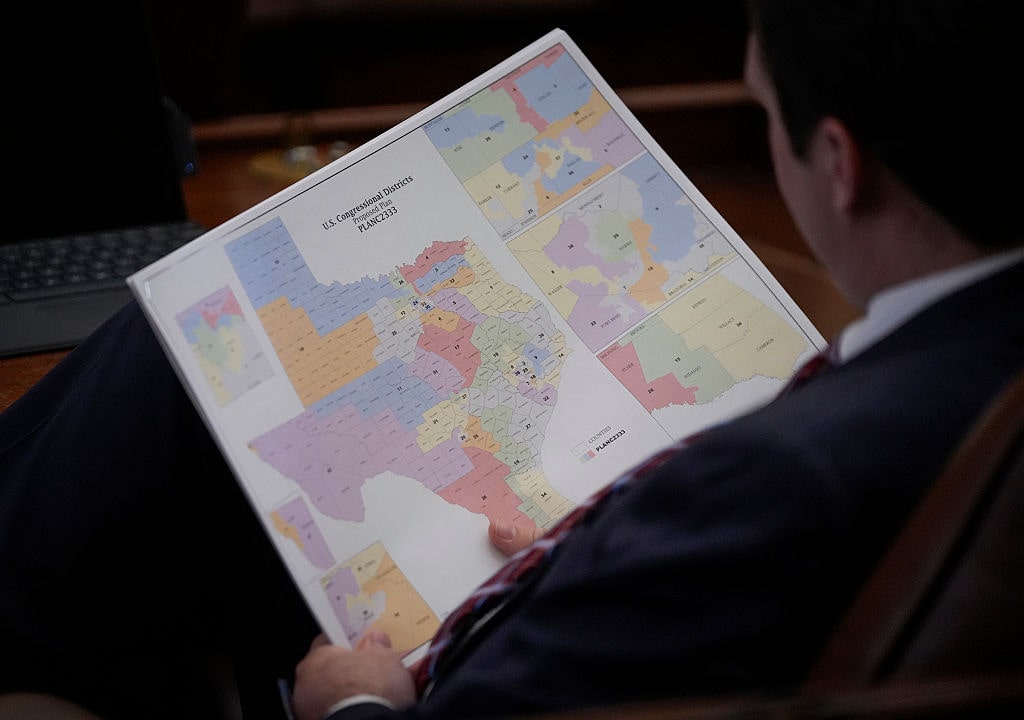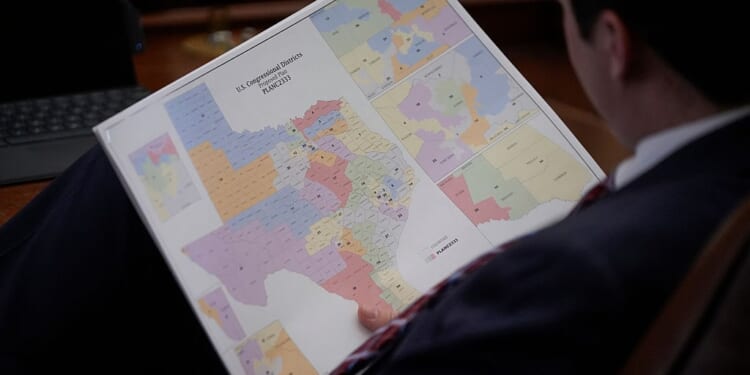
When race and politics collide to benefit only one side.
Regardless of one’s political perspective, it is hard to dispute the premise that Democrats have always been better than Republicans at certain things. More accurately, perhaps, they seem to be able to get away with things Republicans never can. Redistricting – or gerrymandering – is one of those things. On Nov. 18, a three-judge panel for the US District Court in the Western District of Texas blocked the use of the state’s recently redrawn congressional map, which could have flipped as many as five of the Lone Star State’s districts from Democrat to Republican.
It’s a development that could very well have a significant impact on the 2026 midterm elections.
Judicial Showdown in Texas
The two-to-one majority opinion, written by Trump-appointed Judge Jeffrey Brown, claimed racial motives drove the crafting of the new map. The administration of Gov. Greg Abbott has already filed an appeal of the ruling with the US Supreme Court. Abbott called the decision “absurd.”
US Circuit Judge Jerry Smith, the dissenting voice on the panel, wrote, “In my 37 years on the federal bench, this is the most outrageous conduct by a judge that I have ever encountered in a case in which I have been involved.”
Judge Smith, a Reagan appointee, wrote a scathing 104-page dissent that was published Nov. 19 – a day after the majority ruling was issued, because Brown refused to wait for Smith’s dissenting opinion. “The resulting dissent is far from a literary masterpiece,” Smith wrote. “If, however, there were a Nobel Prize for Fiction, Judge Brown’s opinion would be a prime candidate.”
The panel’s majority opinion said, “To be sure, politics played a role in drawing the 2025 Map. But it was much more than just politics. Substantial evidence shows that Texas racially gerrymandered the 2025 Map.”
Race and Redistricting
The problem Republicans face, when it comes to redistricting, is a Supreme Court decision which holds that the redrawing of congressional maps cannot be driven primarily by racial considerations – but the door is left open for redistricting for political reasons.
That’s a sort of no-win situation for the GOP. Since Democrats rely heavily on black votes, they can redraw congressional district maps along racial lines but claim a primarily political motivation. When Republicans look at redistricting to potentially gain seats, therefore, it would likely involve creating new districts that are less black-dominant – leading to the inevitable accusations of racism. When one party consistently controls a monopoly of support among the country’s largest ethnic minority, it is simply impossible to separate politics from race. To say that one party can consider race when redistricting because that’s politics, but the other party cannot consider race because that’s racist is absurd.
Republicans expressed outrage at the decision. On the day the court panel released its ruling that temporarily blocked the new map, Texas Attorney General Ken Paxton said:
“For years, Democrats have engaged in partisan redistricting intended to eliminate Republican representation. But when Republicans respond in kind, Democrats rely on false accusations of racism to secure a partisan advantage.”
Several high-population “blue” states have very little Republican representation in Congress. Illinois is a classic example. Just three of the state’s 17 congressional districts are represented by Republicans. Democrats have been winning this game for decades. California is on the verge of redistricting to eliminate as many as five Republican districts. Currently, 43 of the state’s 52 districts are represented by Democrats.
If the Golden State’s plan comes to fruition, it will mean that the approximately 39.5 million residents have four Republican representatives between them. That’s akin to a European country with one-party rule.
“Both parties are redistricting to increase their political advantages, but only one party is being accused of doing it for nefarious reasons,” said Republican strategist Ryan Williams. “It’s a double standard and I think most voters can see that.”
Liberty Nation does not endorse candidates, campaigns, or legislation, and this presentation is no endorsement.

















